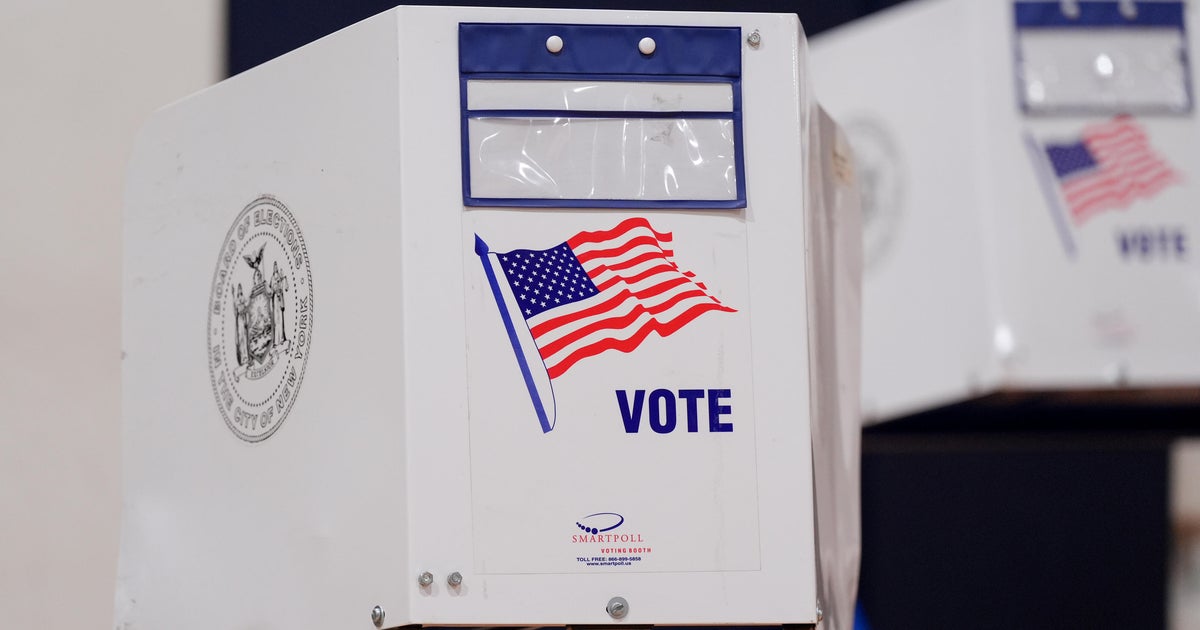Disney government says Florida law to dissolve its special tax district needs to be "deciphered"
The battle between Florida's governor and Walt Disney World is now simmering amid confusion over what happens next.
The feud between Ron DeSantis and Florida's largest private employer centers on whether the state can legally dissolve the Reedy Creek Improvement District, a special tax district controlled by Disney, as the governor and local lawmakers did last week.
Officials with the district this week offered little by way of clarification as to what recent events meant for the future.
"We don't know where we are going," Donald Greer, a member of Reedy Creek's board of supervisors since 1975, said, speaking on Wednesday after the district's first meeting since DeSantis signed into law legislation that dissolves the district next year.
"The district may have a response as soon as we know what it means, but I don't know if anybody knows what it means. I don't think anyone has deciphered it," Greer said.
Rapidly passed in the Republican-controlled statehouse, the dissolution bill came without public research into its impact.
The measure came as the Republican governor and his supporters looked to retaliate against the company over its opposition to a new state law barring schools from instructing children in kindergarten through third grade on issues related to sexual orientation and gender identity.
Disney CEO Bob Chapek initially tried to stay out of the heated public debate over the measure, derided by critics as the "Don't say Gay" law. But with pressure growing from inside the company to oppose the measure, he eventually came out publicly against the bill at his company's annual shareholders meeting in March.
DeSantis, considered a likely 2024 presidential candidate, responded by seeking to tarnish Disney as "woke," and moved to end the special status that allows the theme park resort to effectively run as its own municipal government on the 39-square mile property it owns, called the Reedy Creek Improvement District.
Making its only public statement since DeSantis and lawmakers directed their ire at Disney, the company this week expressed confidence to district investors that the state could not legally void its 55-year arrangement so long as Reedy Creek's bond debt was not paid off.
As a result, the bid to disband the special tax district in Orange and Osceola counties would break an agreement made by Florida when it created the district in 1967, the company signaled.
Posted on the website of the Municipal Securities Rulemaking Board on April 21, Disney stated: "In light of the state of Florida's pledge to the district's bondholders, Reedy Creek expects to explore its options while continuing its present operations, including levying and collecting its ad valorem tax bonds and utility revenue bonds, complying with its bond covenants and operating and maintaining its properties."
Florida is contractually obligated not to get involved with the district until the bond debt is paid off, Jacob Schumer, a municipal attorney with Maitland, Florida, law firm Shepard, Smith, Kohlmyer & Hand, told CBS MoneyWatch.
"The task of dissolving a special district and dividing its responsibilities between two counties is tremendous," he said.
Disney did not respond to a request for comment. The company employs about 80,000 people at the resort, which includes multiple theme parks, hotels and its own bus fleet.
Critics of the dissolution bill caution that neighboring counties may wind up bearing some $1 billion in debt for the district, but DeSantis has dismissed those concerns.
"The governor's team is working on administering this legislation which is designed to level the playing field for businesses in Florida. When we have more to share on our path forward, we will be glad to send it along. As the governor has consistently stated, Floridians will not have to carry Disney's burdens," a spokesperson told CBS MoneyWatch in an email.
Jon Shirey, head of the union for Reedy Creek's firefighters, who make up about half the private government's 400 employees, asked supervisors to reassure his members that their jobs and benefits were safe. The firefighters, particularly retirees, are worried about losing their guaranteed lifetime health insurance, he said.
"We have been told to stay quiet, don't talk to the media, don't engage with current events," Shirey told supervisors. "We have been told the leadership of the district will tell the story. They will be the ones putting out the message. I ask you, 'What is that message?'"
"There's nothing I can do about it and I don't think there's anybody here that knows what to do about it. The governor of Florida will have to decide that," Greer said, according to News 6. "Hang on, just hang on with the rest of us. We'll live through this," Greer said in response to concerns about the future expressed by nearly 400 district workers, including more than 200 firefighters.
Credit rating agency Fitch Ratings has put Reedy Creek on a "negative watch" list, indicating that the private government's ratings could stay the same or potentially be downgraded. A downgrade would make borrowing more difficult for Reedy Creek.
Another ratings agency, S&P Global Ratings, said that among the questions left unanswered by the new law were whether Reedy Creek would reconstitute after it's dissolved next year, how utility operations and debt would be transferred to the neighboring governments if it came to that and how the neighboring governments would raise taxes to secure Reedy Creek's debt.
Under the law, Reedy Creek would expire by June 2023. The lack of public answers from Reedy Creek leaders may come from fear "the governor will find their statements unfriendly and that will complicate things," said Shirey, who added he's hopeful lawmakers will look after the district's first responders.
"We have 14 months, and a lot can change between now and then," Shirey said.
— The Associated Press contributed to this report.





